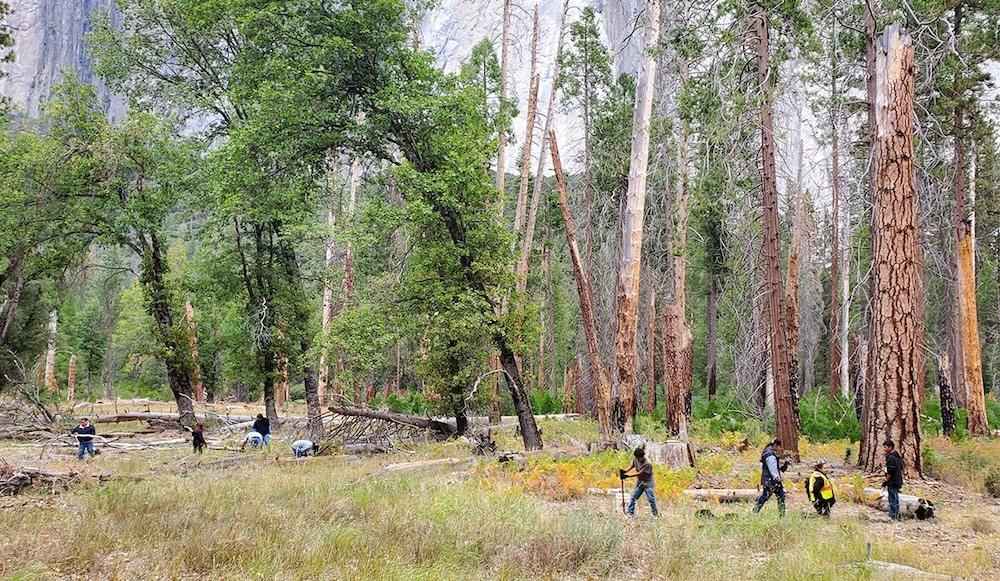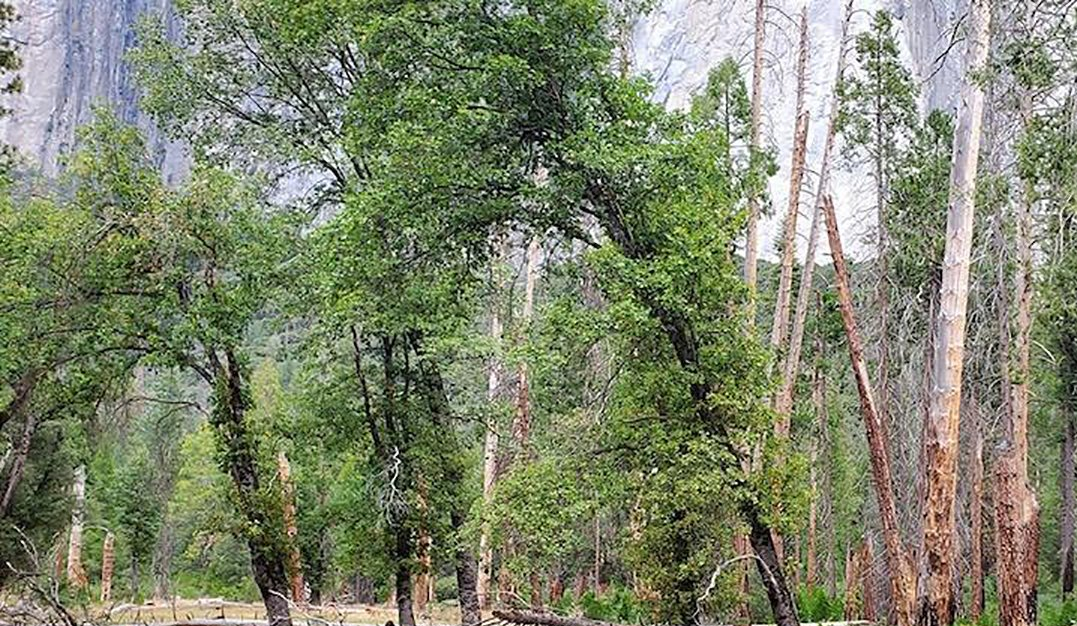 Tribal members steward black oak groves by creating burn piles out of dead and down wood, planting saplings and collecting acorn near El Capitan / NPS
Tribal members steward black oak groves by creating burn piles out of dead and down wood, planting saplings and collecting acorn near El Capitan / NPS
The National Park Service (NPS) is inviting public input on an Environmental Assessment (EA) as part of a planning effort to potentially allow tribal members with traditional ties to Yosemite National Park to gather plants and plant parts for cultural and traditional uses. The comment period runs from January 13 to February 12, 2025. During this time, you can share your thoughts on what the NPS should consider in their assessment, including the potential benefits and challenges of permitting traditional plant gathering and stewardship by these tribal communities.
In August 2022, the Bridgeport Indian Colony submitted a plant gathering request on behalf of the seven tribes traditionally connected to Yosemite National Park. This project aims to establish a plant gathering agreement, ensuring tribes can collect native plants legally, sustainably, and in ways that preserve and strengthen tribal traditions while protecting the park’s resources.
Yosemite National Park works closely with seven traditionally associated tribes, all of whom will be part of this planning effort. These tribes include the Bishop Paiute Tribe, Bridgeport Indian Colony, Mono Lake Kootzaduka’a Tribe of California and Nevada, North Fork Rancheria of Mono Indians of California, Picayune Rancheria of Chukchansi Indians, Southern Sierra Miwuk Nation (also known as the American Indian Council of Mariposa County), and the Tuolumne Band of Me-Wuk Indians.
Right now, the removal or disturbance of plants or plant parts is illegal in Yosemite (unless approved by the Superintendent). But tribes have gathered plants for food and other purposes in the Yosemite area long before the national park was established. The tribes say being blocked from freely gathering plants on their ancestral lands has broken cultural ties by eliminating the ability to pass down knowledge from one generation to the next.
In 2016, the National Park Service established rules allowing individual parks to work with federally recognized tribes to create agreements for gathering plants or plant parts. Before making these agreements, the NPS is required to assess the potential impacts of traditional tribal gathering practices.
And so, Yosemite is developing an Environmental Assessment to determine potential impacts of any plant collecting by tribal communities.
The park is requesting input during a public scoping period.
Share your thoughts on what the National Park Service should consider in their analysis. Think about the potential benefits and challenges of tribal members gathering and tending plants for traditional purposes.
Submit comments online. This preliminary comment period closes on February 12, 2025.
